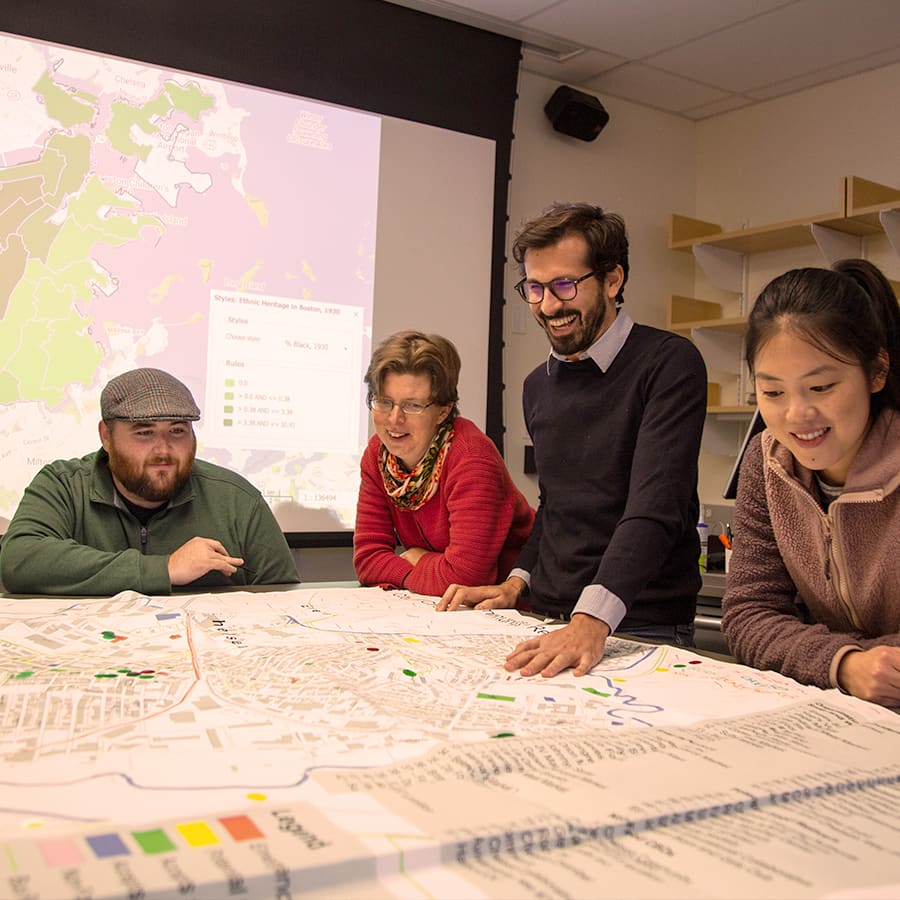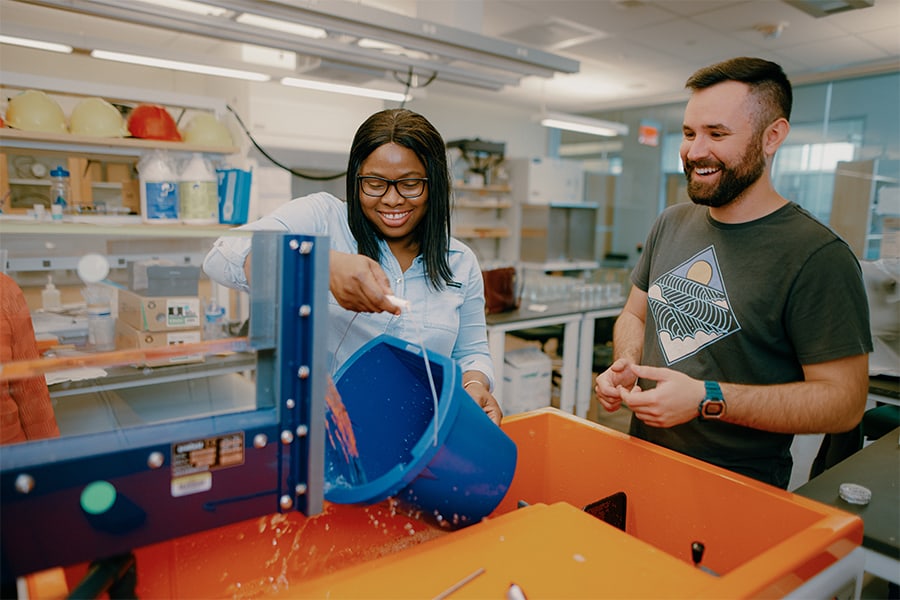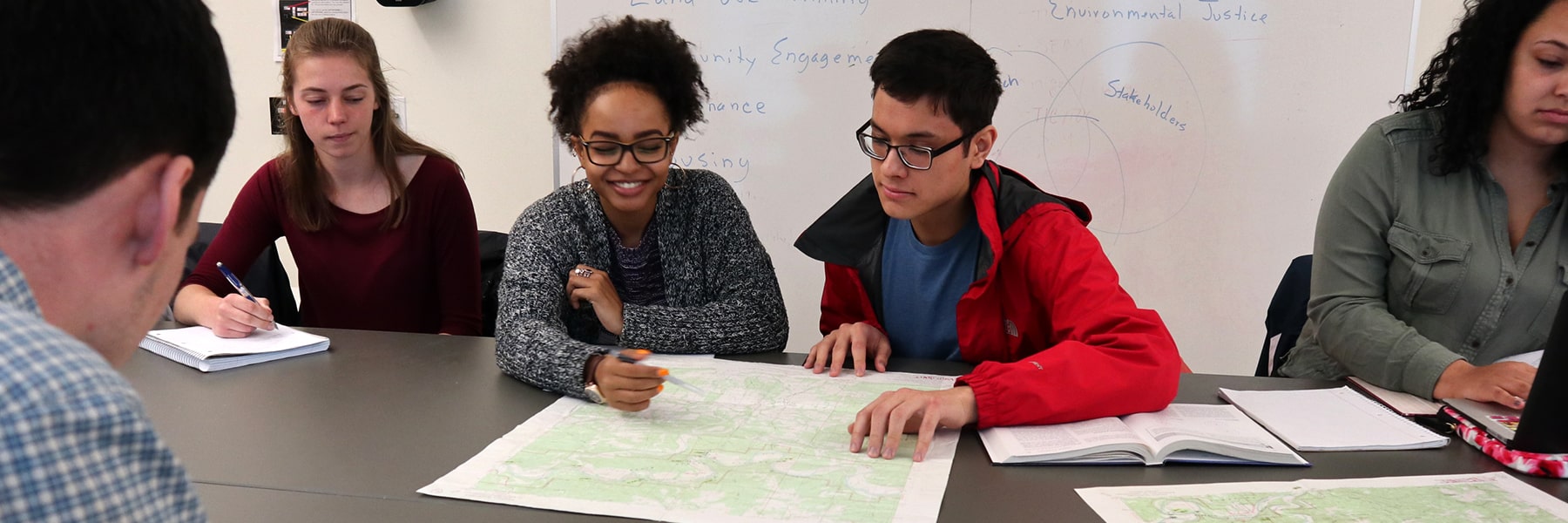Plan Your Education
How to Apply
Apply for Admission
Please review the first-year and transfer apply pages for important information about application requirements, deadlines, and application status check.
Financing Your Education
Become a Beacon and pursue your passion in UMass Boston’s diverse, supportive environment. Many students across our 200+ undergraduate and graduate programs receive financial aid—providing access to an education that’s exceptional and affordable. Click below to learn more about financial aid opportunities and deadlines.
Financial Aid Deadlines & Application Process
Scholarships for First-Year & Transfer Students
Graduation Criteria
If this is the student’s only or primary major, the degree requirements below must be completed for graduation. See graduation requirements for more information.
School for the Environment Requirements for Bachelor of Arts
Complete 45 credits from 16 courses including two 100-level core courses, one statistics course, four 200-level core courses, two methods courses, four electives at the 300 or 400-level, one practicum, and two seminars.
GPA: A minimum GPA of 2.0 for all major courses.
Pass/fail: No courses taken pass/fail may be applied toward the major.
Residency: At least five courses for the major must be completed at UMass Boston.
Deadlines & Cost
Early action deadline: November 1; Regular Decision Deadline: June 15
Financing Your Education
Become a Beacon and pursue your passion in UMass Boston’s diverse, supportive environment. Many students across our 200+ undergraduate and graduate programs receive financial aid—providing access to an education that’s exceptional and affordable. Click below to learn more about financial aid opportunities and deadlines.
Financial Aid Deadlines & Application Process
Scholarships for First-Year & Transfer Students
For additional information regarding tuition and fees, please visit the Bursar’s Office or send an email to Bursar@umb.edu.
Curriculum
100-Level Core(9 Credits)
Complete the following three 100-level classes
- ECON 101 - Introduction to Microeconomics 3 Credit(s)
- ENVSTY 101 - The Nature of Environmental Problems 3 Credit(s)
- UPCD 120L - Boston: Social Justice and the City 3 Credit(s)
Statistics/Quantitative Reasoning (3 Credits)
Complete one of the following statistics classes
- MATH 125 - Introductory Statistics 3 Credit(s)
or - ENVSCI 261 - Statistics for Environmental Science 3 Credit(s)
200-Level Core (10 Credits)
Complete the following three 200-level classes
- UPCD 201 - History and Theory of Community Development 3 Credit(s)
- UPCD 210 - Community Health and Environment 3 Credit(s)
- ENVSCI 281 - Introduction to Geographic Information Systems 4 Credit(s)
Methods (6 Credits)
Complete the following two methods classes
- UPCD 301 - Introduction to Research Methods and Community Analysis 3 Credit(s)
- UPCD 303 - Quantitative Methods for Community Development 3 Credit(s)
300/400-Level Electives (12 Credits)
Take four courses from the list below.
- UPCD 321 - Fundamentals of Housing 3 Credit(s)
- UPCD 351L - Architecture and Human Built Environment Interactions 3 Credit(s)
- UPCD 353L - Community Economic Development in the U.S.: Class, Race, Ethnicity 3 Credit(s)
or - UPCD 356L - Economic Development and Environmental Justice 3 Credit(s)
- UPCD 371 - Organizational Behavior for Public and Nonprofit Organizations 3 Credit(s)
- ENVSCI 340L - Planning and Land Use Law 3 Credit(s)
or - ENVSCI 375L - Urban Planning 3 Credit(s)
- ENVSCI 315L - Introduction to Environmental Health 3 Credit(s)
or - ENVSTY 364L - Environmental Justice 3 Credit(s)
- ENVSTY 371 - Telling the Story: Broadcast Multi-media Communications about Natural, Built, and Human Environments 3 Credit(s)
Practicum (3 Credits)
Take one course from the list below.
- UPCD 457 - Internship in Community Development 3 Credit(s)
- UPCD 459 - Capstone in Community Development 3 Credit(s)
- UPCD 478 - Independent Study in Community Development 1-6 Credit(s)
- UPCD 498 - Honors in Community Development 3 Credit(s)
- ENVSCI 476 - Environmental Science Capstone 3 Credit(s)
Seminar (2 Credits)
Complete the following two seminars
- ENVSTY 210 - Second-Year Seminar: Conflict and Resolution 1 Credit(s)
- ENVSTY 310 - Third-Year Seminar: Professional Development 1 Credit(s)
For more information on curriculum, including course descriptions and degree requirements, visit the Academic Catalog.
Learning Outcomes
Upon completion of the Community Development BA Program:
- Students will be able to explain the consequences of market forces, state policies, racism, and legacies of colonialism on different cultural, economic and geographic communities.
- Students will apply analytic (both qualitative and quantitative) skills to identify problems, design appropriate community studies, select action strategies, and test best practices in community development.
- Students will be able to discuss and analyze diverse positions on contested community issues, including those of different cultural, economic, political and geographic interests, to find resolutions mindful of this diversity.
- Students will successfully engage in partnerships with community groups and organizations to build healthy, safe, sustainable communities. Students will have the necessary competencies to engage with local, state and federal government agencies as a community advocate.
- Students will understand the system interactions and feedbacks between human activities and social institutions and the natural environment.
- Students will be experienced in communicating their learnings both in writing, visually, and orally, and for specific and general audiences.

Urban Planning & Community Development
Learn more about UMass Boston's Urban Planning & Community Development department, our research, and our faculty.
Explore the Department of Urban Planning & Community Development
School for the Environment
Interested in learning more about the faculty, research, and range of programs that make the School for the Environment so popular?
Explore Now